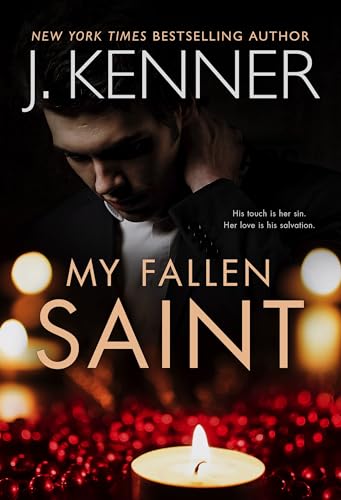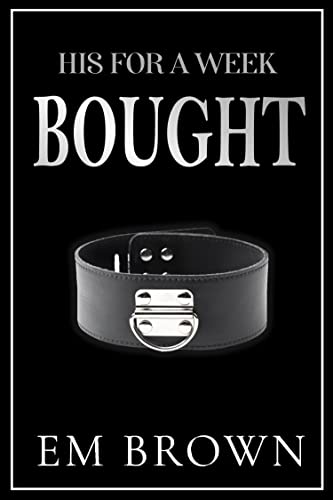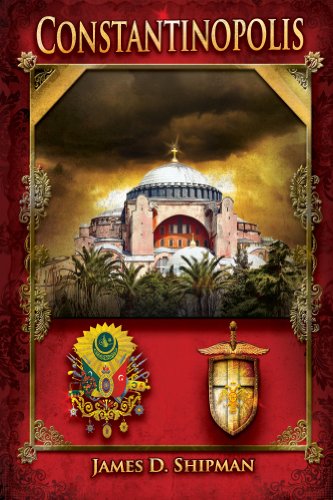***AMAZON TOP FIVE BESTSELLER***
in Mystery & Suspense Anthologies
“An awesome book…stories that will make you cry, shudder and scare you silly…”
From the author of the Amazon bestselling novels The Delta Chain and Disappear come these 17 tales of mystery, murder and psychological suspense…
4.4 stars – 12 Reviews
Text-to-Speech and Lending: Enabled
Here’s the set-up:
Like switchback trails with their unexpected twists and turns, these tales lead us through a maze of mystery, murder and psychological suspense, deceit, obsession, romantic intrigue and family secrets. Switchback Stories explores the mixed fortunes of fate that can surprise any one of us at any time:
In Washington DC a charismatic anti-drug lobbyist is targeted by a powerful crime cartel. With precise planning, the assassins close in on their prey – alone in his house – only to confront the one scenario they could not envision.
A Boston airline disaster and an extraordinary twist of fate have given a selfish man the chance to commit an undetectable killing. No-one will ever suspect a crime has taken place. Is it the perfect murder?
An ambitious actor has a foolproof way of advancing her career, at the expense of another. Nothing can go wrong. Sometimes, however, everything going right delivers the most unforeseeable result.
A famed South African diamond, unique for its light reflecting brilliance, is guarded by advanced technology. A dynamic cat burglar uses a variation on movie stunt trickery to plan a daring heist.
An aging drifter forms a bond with a young woman and her son in the Australian countryside – what is it about their small town he finds both familiar and unsettling?
In England’s north, the ‘Last of the Lighthouse Keepers’ uses his knowledge of treacherous waters for a desperate act – setting in motion a chain of events even he is powerless to stop.
5-star praise for Switchback Stories:
“Still on my mind…Anytime I am…still thinking about [a book] 3 or 4 days later…it’s a good book!…”
“Iain Edward Henn promises stories with a twist, and he delivers…easily among the most enjoyable short stories I’ve read…”
an excerpt from
Switchback Stories
by Iain Edward Henn
Copyright © 2014 by Iain Edward Henn and published here with his permission
THE SILVER CHAMELEON
One
His diary was not really a diary at all – the term implies a certain order and structure – but instead a written whirlwind of names, dates, places and subjects that seemed, at a glance, to defy the physically possible.
And yet that was the very thing about Matthew Carpenter, thought Nancy Yates, the man simply defied the physically possible.
October 4th. His ‘official’ day began at 7.45 a.m. at a breakfast meeting with the three congressmen who were his strongest allies.
At 9 a.m. he was on the other side of the city for an interview in the Washington studios of the nation’s highest rating TV morning program.
At 9.30 he was several streets away for an interview on a nationally syndicated radio talk show.
10 a.m. and he was back on Capitol Hill for no less than fifteen meetings – some of them lasting less than ten minutes – with key legislators. These meetings were held in various rooms as the politicians went about their normal day, in and out of hearings and voting sessions.
Many of these meetings were conducted on the run as congressmen ran late or were called upon for urgent matters.
Matthew Carpenter knew how to improvise, tracking legislators down, strolling with them as they were called from one meeting to another.
Lunch with an influential senator from New York was wedged in between 12.45 and 1.30.
In these recent weeks, Carpenter’s days had been more chaotic than ever. He was no longer just a well-known face in the lobbying crowd, vying to attract the attention of the political heavyweights. Now he was the cause de jour, sought out by many of the bandwagon jumpers around him.
As a Washington DC lobbyist, he represented the interests of many corporate and community clients, but this project was his own personal creation, and he was its best advocate.
His anti-drug initiative was the talk of the town, and was harnessing more and more media space. Carpenter ran it the same as any of his lobbying campaigns.
As a result Nancy Yates had hardly seen her boss this past week.
She was firmly positioned in Carpenter’s office suite, in a building on the outer rim of the city’s main circle. Volunteers came in to assist from time to time, but she was often alone, manning the phones, conducting meetings with those interested in the Initiative.
She was forever organizing and re-organizing his “diary.”
Somehow Carpenter made the impossible schedule work.
That was just one of the things that amazed and impressed his feisty, matter-of-fact office manager. Nancy spoke to her boss constantly throughout the day. Like most high-flyers, Carpenter’s cell phone was almost permanently glued to his ear.
It was perhaps fortuitous then, that Carpenter had set aside half an hour from 2 p.m. in the office, for a catch-up, prior to heading across to the Senate building.
Nancy had received a media request that she believed was of particular interest.
‘You remember that LA woman who interviewed you briefly, oh, about six months ago?’
‘Of course. Good journo. Nice girl.’
‘Down, boy-’
‘I meant nothing by that, Nancy-’
‘I know, I’m joking. Goodness, we are touchy today. You’re as bad as my husband. Anyway, I’ve had her on the phone this morning, rabbiting on.’
‘About?’
‘She’s based in DC now. She wants to spend a week with you, fly-on-the-wall doco stuff, a week-in-the-life series of segments for her news show. But she stressed something very special about her proposal, she’s emailing the details, wanted to know if we’d consider it as soon as possible.’
Carpenter cast his mind back to that earlier interview. ‘She had a brother who died of an overdose. Revealed it on-air during that interview.’
‘Yes,’ said Nancy, ‘it carried a lot of emotional impact at a time when we were still trying to get real attention.’
‘Do you know what she has in mind?’
‘She wants to shoot film of drug victims, and/or their families – telling their stories – and to splice that in between the interviews with you as she follows you on the campaign trail.’
‘Sounds strong.’
‘We’ll have her notes on this soon-’
‘No need to wait.’
‘You want me to set up a meeting?’
Carpenter glanced at his watch.
In just two hours he was due back on the Hill.
Senators supporting Carpenter had introduced his Initiative to a Senate Sub-Committee with the intent of having a bill drafted. Investigating the validity of such a bill, the Sub-Committee had already held several hearings, calling testimony from experts. For today’s meeting, the senators had arranged for Carpenter’s testimony to be broadcast live to television and radio, in addition to the regular webcasts.
To galvanize the swell of public and media interest, they were treating Carpenter’s appearance as a special event.
‘No. Tell her we’ll do it – and if she can meet me at the Capitol before my speech she can start filming her story straight away.’
Two
Alison Reslin was hot and she knew it.
Honey-haired, blue-eyed, vivacious, beaming with West Coast charm. She was the most popular reporter on the national political program, Capitol Views.
Men hit on her all the time but Alison swatted the male attention aside. She hadn’t dated for over a year, she was wedded to her job, always on the go, and truth be told no-one was kindling her romantic interest.
In her role she often mingled with high flying politicos and businessmen, sports stars and showbiz celebs. She should have found them intoxicating.
Instead, for reasons she hadn’t fathomed, she found them boring.
Alison was rarely flustered, she wasn’t the type, but after she received the call from Nancy Yates, she took a moment to compose herself, took several deep breaths.
And then she launched into overdrive.
Not only had her proposal been accepted, but Carpenter was ready to start now. As in now.
She needed to be at the Senate in less than an hour, with a cameraman in tow.
She marched into the producer’s office.
‘You know that 24/7, fly-on-the-wall, talk-as-he-walks series of segments on Matthew Carpenter I proposed?’
The boss looked at her expectantly.
‘It’s on,’ she said.
Three
Ricardo Guiterrez entered the ‘situation’ room, as he liked to call it. Schematics of Carpenter’s home covered the wall. His eyes wandered over these and then he turned to the two men who’d been waiting.
These two were the leaders of a military-style killing unit. But they were not military.
‘How much does his nightly routine vary?’ Guiterrrez asked.
The two men, and the members of their elite unit, had been observing the home, and the comings and goings of its occupant – Carpenter – for two months. Waiting for word on when this “hit” was on.
‘Very little,’ the key observer said. ‘This man is a creature of habit. His days appear designed so that he’s home at around 7 p.m. On occasion this varies due to late running meetings or evening functions, but they are surprisingly rare for a man like this. We’ve observed him in his kitchen, usually fixing a drink. At around 7.30 all the lights go out except for exterior security lights and a muted light in the kitchen.’
‘There’s no further movement?’ These details had been reported to Guiterrez before – but after eight weeks of surveillance and now with the mission close to being green-lighted, it was time for final confirmation on all the details.
‘No, sir. He retires at that time. We believe he may remain in the sitting room for a short while and then go up to the bedroom. Apparently he must always dine out before heading home.’
‘No visitors or phone calls, no signs of any activity whatsoever within the residence?’
‘None.’
‘And on those days when he has no business activities organized?’
‘He doesn’t leave the house.’
‘And those days of non-activity are regular?’ It was more a statement than a question.
‘Correct, sir. Usually one day a week, sometimes for a couple of days in a row, and on those days he remains alone in the house.’
Another three men entered, carrying large cases. They placed these on the table at the far end of the room and removed compact sniper rifles and night goggles.
‘Latest-issue, military order,’ Guiterrez said, ‘heat sensors to lock-in on human targets, infra-red night viewing gear with inbuilt communications, but you won’t need to use the rifles unless you meet with something unexpected – police, neighbours, visitors, all highly unlikely.’
The three men with the cases now removed another item, a small pistol.
‘These are the weapons of choice,’ Guiterrez continued, ‘and they don’t fire bullets.’
The two men examined the equipment.
‘When do we move?’
‘There’s no time like the present,’ Guiterrez said.
‘Tonight?’
‘All being well, yes. I’ll give the final “go-ahead” when you’re on site.’ Guiterrez’s next stop was the conference room along the hall.
Under his influence and guidance, final agreement would be just a formality.
The cartel members were waiting.
Four
In the Senate Public Reception area, Alison met with Carpenter. It was shortly before he was due to give his televised address.
Her cameraman/sound guy, Sam, was set up, and had special permission to continue behind-the-scenes filming after the interview, when Carpenter entered the hall and took to the specially arranged podium.
Alison was seated on the large, plush visitor lounge, across from her interviewee, and for the first time in a long time something was stirring those inner fires. She was drawn in by his eyes, brown and hazel-flecked, the strong jaw, the light brown hair with just a few premature specks of grey, the lanky frame and the open-necked, slightly crumpled designer suit.
He had a natural, easy charm.
‘Ready to rock and roll,’ said Sam.
Alison nodded to Sam and then focused on Carpenter.
‘Thank you for inviting us into your world, Matthew.’
‘My pleasure.’
‘Congratulations on the rapidly growing support you’ve been getting.’
‘Thank you.’
‘It’s a bold concept, one that must mean a great deal to you, not just in a professional sense, but personally and emotionally, given the inspiration.’
‘It’s certainly gratifying to see true bi-partisan support, Alison.’
‘I hope you won’t mind me touching on old wounds, Matthew, but I believe it was the deaths of your parents, when you were just a teenager, that set you off along this path.’
‘I don’t mind at all. It’s a very important part of my story. Perhaps the most important part. My parents loved DC and they were passionate followers of its art scene – true bohemians,’ he broke into a broad grin at this memory and the reporter returned the smile ‘-my Mom was an artist and she ran a small but highly regarded gallery, my Dad was a jazz muso. They were the ones who originally launched the annual Riverside Arts Festival.’
‘They’d be amazed to see what it’s grown to today.’
‘Yes, they would.’ Carpenter paused momentarily, a far-away look in his eyes as the past projected its images before him. Great happiness. Terrible tragedy.
‘But my parents were both drug users and they had been most of their adult lives. It started with weed, but later they got into cocaine. They were addicts and as the years rolled on it became more and more a part of their lives. Initially it didn’t stop them doing what they did. It didn’t prevent them from being the best parents they could be. But over the years it took its toll. It ravaged their health, their moods became increasingly erratic, the financial pressures of maintaining the habit caused chaos.’
Carpenter looked as though he was going to continue, but then he stopped. There was a silence as he stared off.
‘And your father died from a drug overdose when you were fourteen?’
‘Yes. It plunged my mother deep into depression and even deeper into the coke. She overdosed herself, eighteen months later.’
‘Go on.’ Alison’s voice was gentle. Right then and there on camera, for the millions of viewers, was an intimate moment, rarely captured in a news show of this type.
‘I went to live with my aunt. She was terrific. But as I got a little older, Alison, I looked at the world around me, at the politicians, at the media, at the health professionals, at the law enforcement and legal systems – there was a loud, broad, ongoing dialogue agreeing that something had to be done about the drug problem – but there were no new ideas, and little or no progress. It seemed to be one huge merry-go-round, lots of noise and smoke and mirrors, but no real action. The problem grew, the statistics got worse, the drug lords got richer.
‘My situation was, admittedly, an unusual one. Instead of being a parent who lost a child to drugs, I was a teen who lost both his parents. I was young enough, and perhaps silly enough, to think I could set out and do something – something that really could make a difference.’
‘And after graduating college,’ Alison said, referring to her notes, ‘while studying law, you began seeking financial support for an organization that would do just that. Ultimately, while you practiced law, and later became a fulltime Washington lobbyist, you created what you call The Initiative, but which the media have labelled The Carpenter Initiative.’
Carpenter grinned. ‘I don’t mind what it’s called. As long as it’s put into operation. As long as it starts getting results.’
Occasionally, as he spoke, Carpenter raised his right hand to chest level, briefly running his fingers across a silver medallion that he wore around his neck.
Alison leaned in a little closer, recognizing the engraved image of a lizard-like creature with large, inquisitive eyes. ‘Is that a chameleon?’
‘Yes. Belonged to my father. He had something of a fascination for exotic creatures. This was his favourite and he always wore it.’
‘So it’s obviously very special to you.’
‘Oh yeah.’ He lifted the medallion up level with his chin, affording Alison a better view and a sliver of light sparkled off its silvery surface. ‘And I certainly take after my Dad where the chameleon is concerned. Intriguing creature.’
‘I have to confess some ignorance here, I don’t know too much about them,’ Alison said. ‘They can change color.’
‘Their skin can take on many different colors, enabling them to blend into any background. The perfect disguise from predators. And their eyes rotate fully, giving them a 360 degree view. So they can move at high speed with vista-like observation and the ability to hide in plain sight.’
‘Sounds like a politician.’
He laughed.
‘Or maybe a lobbyist,’ she added with a mischievous wink.
‘Or perhaps a TV reporter,’ he countered, and the comment caught her off guard and she threw her head back with a hearty laugh of her own and said, ‘Touché.’
‘Or just maybe, ‘he said, ‘in life, to get by, to achieve, we all have to be chameleons from time to time.’
‘I’ll drink to that,’ she said, raising an imaginary glass.
It was another great moment, she reflected, caught on camera, offering a glimpse of the real man behind the public persona.
That was when the Secretary of the House Sub-Committee approached. ‘Mr. Carpenter, it’s time.’
Five
Guiterrez took his place at the head of the boardroom table.
His instincts had never been wrong, and his guidance had ensured the success of one project after another for the cartel members. They had flown in from all over North and South America. There were a number of items on the agenda, but on this occasion everything else paled by comparison to the Carpenter problem.
None of them had foreseen just how much support there would be for the Anti-Drug Initiative.
Guiterrez knew when he and his colleagues were facing a formidable enemy.
Growing up, Guiterrez had spent time on both sides of the border, the son of an American mother and a Mexican father. The family owned a transport business, a cover for a drug smuggling operation. Guiterrez had been a young man when he took over the business, expanding the distribution, moving into manufacturing, creating the cartel with other drug runners.
Ambitious and ruthless, he knew the sure-fire way to success was to eliminate your enemies before they became too great a threat.
Carpenter represented just that. Charismatic and driven, with extensive contacts throughout the political parties, the media and the Fortune 500.
He’d slowly been building his profile over the years, but to many it seemed like he’d appeared out of the blue, stepping magically into the light.
He wasn’t just flavour of the month, he was the man of the year. Everybody and their dog wanted to leap up onto his blasted bandwagon.
‘There are three options for how we could dispose of Carpenter,’ Guiterrez addressed the group.
To each and every one of these men it was essential the Initiative was derailed. And quickly.
‘The first option is we simply send our “kill” team to Carpenter’s house and leave his body behind as an example of what happens if you rise against us. But Carpenter has too high a profile, his murder would simply make him a martyr. I expect the media would elevate him to saint status. Support for his plan would continue.’
‘Agreed,’ said a bald-headed man at the end of the table. ‘Effective most of the time, but not in a case like this.’
‘The second option,’ said Guiterrez, ‘is that we remove the body and make certain it’s never found. But the effect of this would be similar to the first, if not worse. The media will speculate forever on the mystery of what happened to him. The search for Carpenter, and the speculation that he was murdered, will keep support for his Initiative alive. He’ll be a cause celebre in absentia.’
‘And the third option?’ asked one of the newer members, the son of a Cuban family who’d long been major players in the trade.
‘The third option is we call on one of our associates, a lower-tier brothel owner that operates just outside the city. He will choose one of his girls to be our patsy.
‘We send in our “kill” team – not to kill Carpenter but to render him unconscious with tranquilizer darts. They will spirit him away from his home to the brothel and pump him full of drugs. He’ll be placed in a room with the girl, who will also be doped up to her eyelids.’
Guiterrez took a breath and cast his gaze over the men at the table. All eyes were fixed on him in anticipation.
He continued: ‘We then have Carpenter stabbed to death and the knife used placed in the hands of the prostitute, with his blood smeared over her. The brothel owner will testify that Carpenter was a regular customer, that this time he’d been out of his mind on drugs, attacked the girl when they were alone in the room, and that she’d murdered him in self- defence. The girl herself will have no memory of what really happened. She’s a whore and an addict and she’ll attract no pity. What happens to her is of no further consequence to us.
‘The “revelation” that Carpenter himself was a drug user and a sleaze will dominate the media, his reputation will be in tatters, the politicians and the do-gooders will quietly step back and dissociate themselves from him. His campaign won’t be dropped. It will still have strong vocal support, but of course it will be subtly and slowly abandoned over time.’
The bald-headed man, energized by the plan, stood and addressed the group. ‘If this plan can be staged effectively, then this Initiative will eventually be dead-in-the-water.’
‘Precisely,’ Guiterrez responded. ‘He simply becomes, not a symbol, not a hero, but just another high-profile imposter who dies a tawdry and pathetic death, an embarrassment to all those who’d supported him.’
‘I say we take a vote on the third option,’ said the bald-headed man.
The vote was unanimous.
‘One question,’ said a stern-faced, bespectacled man near the head of the table. ‘Carpenter is due to give a televised address to a Senate Sub-Committee this afternoon. Aren’t we running too far behind to stop this runaway train?’
‘It’s true there’s been a rapid escalation this past fortnight,’ said the leader, ‘which is why I suggest that the time to put our plan in to action is right now. Tonight.’
‘Tonight?”
‘Our team is in place, awaiting the order to strike. Carpenter’s immediate fall from grace will overshadow any influence his speech will have.’
The cartel members grunted their approvals.
Occasionally, Guiterrez liked to create a dramatic effect. Right then and there, standing at the head of the table, he tapped a number into his cell phone, placed it to his ear, and said, ‘Proceed.’
He pocketed the phone. ‘You’ve watched the rise of Matthew Carpenter,’ he said, ‘now get ready to enjoy his spectacular fall.’
Six
The Secretary of the Sub-Committee introduced Carpenter to the meeting. He announced that this testimony would outline reasons for turning the Initiative in to a draft bill.
From the moment he strode to the podium, Matthew Carpenter owned the audience. His gaze was penetrating. His voice commanded attention.
He’d trained himself for years for moments like this.
The hearing was attended by the public, the media, and members from the House of Representatives and the Senate.
‘For as long as I’ve been alive,’ he announced, ‘there has been a war going on.
‘I’m not talking about a war against a foreign country, or against a military dictatorship. I’m not talking about a war because of an invasion, or a war over land, or a war against slavery or racism.
‘I’m not even talking about the gender wars.’
Carpenter paused after that last comment, with just the hint of a smile on his face. It was a moment this audience hadn’t expected. There was a subdued ripple of laughter around the chamber, but that was to be the only light moment.
Within a beat Carpenter resumed his serious air.
‘I’m talking about the War Against Drugs, a term with which we’re all familiar. I grew up with it. It’s been woven into our country’s social fabric for four decades.
‘A number of years before I was born, in ‘73, President Richard Nixon created the Drug Enforcement Administration. The DEA was part of, and I quote, his “all-out war on the drug menace.”
‘Thirty five years later President Bush signed the Mérida Initiative, to provide Mexico and other countries the partnership and funds to disrupt organized crime. So, how are we doing? Are we winning the War?’
Carpenter paused again.
There wasn’t a sound.
Every thought in that room was paralyzed by the unspoken answer to that question.
All eyes were riveted on the speaker.
In offices and homes around the country the effect was the same.
‘Over the past forty years our government has spent over two and a half trillion dollars on this War. It’s estimated that in our country today, there are more than nineteen million illicit drug users. The current estimate on the annual income to the drug cartels, from U.S business alone, is more than sixty four billion dollars.
‘Sixty four billion.
‘I lost my parents to drugs. You may have known a friend, a neighbour or a family member whose life was lost to drugs. Their memories deserve better than this.’
Carpenter looked restless. He turned from the podium, took a few steps to his left, nodded to the dignitaries who sat to the side, looked out on his audience, almost forlorn in his expression, and then purposely strode back to center stage.
All of this took less than ten seconds.
Carpenter was just getting warmed up.
Another speaker might not have been able to convincingly pull off a momentary pause and walk gimmick like this, but to Carpenter it came naturally, and struck a chord with his audience.
‘Here’s what I believe with every ounce of my heart and my soul. We can win this War but we have to be utterly ruthless and obsessively one-eyed.
‘The first major change we have to make is to the way we perceive the problem. The War On Drugs isn’t just a slogan. It really is a war, but like no other war that’s ever been fought. It has no boundaries. It has no armies. The enemy is, to most intents and purposes, invisible.
‘Our police forces are equipped to investigate and combat crime – but our police, our SWAT teams, our DEA and other law enforcement agencies – whilst they are doing an excellent job – do not have the military prowess or funding to fight a global assault against the international drug cartels.
‘We need less emphasis on prosecuting the victims, and more on going after the manufacturers, the distributors and the corrupt officials.
‘This war has to be fought as if were fighting the Nazis, as though we were fighting to abolish slavery or to hunt down terrorists.’
There was a thunderous wave of applause. This crowd wasn’t waiting for the address to be over. They were reacting now.
Seven
‘I want to change tack here and look at some images from our drug enforcement history.’ Behind Carpenter three men moved a large viewing screen in to place.
There was a slight dimming of the lights and the screen came to life with news footage. Armed troops moved around the exterior of a large building. Loudspeakers, placed around the perimeter, blared heavy rock music at thunderous volumes. A helicopter hovered.
The legend across the foot of the screen read: Panama, 1989.
‘The Panama Canal Treaty granted US forces access to protect the canal, and they were there to arrest and remove a drug kingpin, Panama’s military governor, Manuel Noriega.
‘Noriega had retreated and taken sanctuary, out of reach, in the Embassy of The Holy See.
‘The Army used psychological warfare. They secured the area, set up helicopter landing pads and used loudspeakers 24/7 blaring heavy rock and US propaganda. The intent was to wear Noriega and his guards down. Eventually, Noriega surrendered.
‘Is this an operation that can be mounted at any time in any place? No. But it’s a stunning example of what can be achieved by combining psychological tactics and military force.
‘There have been missions where our Navy Seals were deployed to infiltrate powerful offshore drug syndicates. Just recently, after a long-term covert investigation, the DEA swooped and made over twenty arrests in Chicago. These are just a couple of random, off-the-top-of-my-head examples of resources currently being used.
‘Now imagine merging the best of all those resources into one super powerful organization
‘My Initiative is for the creation of an Anti-Drug Army to fight – and win – this war.
‘This is not an army that will invade countries, fire missiles or undertake combat that causes destruction and collateral damage. It will not place the lives of innocents in danger. This is an intel-gathering, search, infiltrate and arrest operation on a global scale, bringing together skills from our crime detection agencies and our Armed Forces, backed by diplomatic treaties.
‘Just as we have armies that undertake peace-keeping missions on foreign soil, so we need a specialist army that undertakes Drug Offensive missions both at home and abroad.
‘This is not an Initiative that’s to be used for anyone’s personal political agenda. The passage of this Bill needs genuine bipartisan support, transcending political parties and transcending any of the agencies already fighting the drug menace.
‘This is a new Army for the 21st Century, with new methods to fight a very old enemy.’
The applause was deafening and continued for what seemed forever. Carpenter waved, acknowledging the response, and each time the applause began to fade, it would suddenly resurge again, even after Matthew Carpenter had left the podium.
Eight
Carpenter’s Georgian-style house, an easy drive from Capitol Hill, was in the historic area of Georgetown on the Potomac River. Built a hundred years earlier, it was set well back from the street, with a parkway and biking trails running alongside it. The property’s stonework fence and heavily landscaped garden created an idyllic privacy.
These affluent, tree-lined streets, close to the river and to nearby Washington Harbor, were home to many politicians and lobbyists.
But to the men who watched the house, it made no difference whether their mission was undertaken in quiet, privileged surroundings, or in a chaotic, poverty stricken ghetto. They simply adapted their operation to suit.
Efficiency was never compromised.
The unit leader had coined his own particular catchphrase, a variation of a theme, one that his men often repeated with their own sense of pride: ‘Failure is not on our list of options.’
Six teams, each consisting of two men, were stationed at the front, rear and side of the property.
They also had contacts within the Senate building, keeping track of Carpenter after his address to the House.
The unit leader received a message on his communicator. ‘Carpenter dined near the Hill with a TV newswoman and cameraman. They are driving him back to Georgetown in the news station wagon.’
‘Roger that.’ The unit leader relayed the message to his teams.
Carpenter was minutes away.
*
Closer to the city, another team arrived at the brothel. The owner, a weedy little man whose manic eyes made him look much more dangerous than most men twice his size, led the team to a room at the back of the establishment.
‘The girl’s drink was sedated earlier, as you instructed.’
The girl, skinny with pouted lips, lay on the bed.
‘Give her the drugs,’ the older team man said.
They were expecting the other teams to arrive, with Carpenter, within the hour.
*
Sam pulled the station wagon up on the street outside Carpenter’s home. A long driveway sloped down toward the house.
Alison got out of the car with Carpenter. Although the house was partly obscured by foliage, she could see enough to make out it was a two-storey structure of timber, stone and terra cotta.
‘Nice digs,’ she said.
‘My parents managed to take out a mortgage on this when they were in their 20’s, at a time when they were both doing well financially.’
‘And you were able to hang on to it.’
‘After they died my aunt had it rented out, kept the mortgage going until the time when I’d be able to take it over myself and move in. Paid out that mortgage just last year.’
‘How’s that incredible aunt of yours doing?’
‘She died last year.’
‘I’m so sorry to hear that, Matthew.’
‘She was in her 80’s, a grand old dame if ever there was one. I owe her a hell of a lot of everything. Miss her as much as I miss my parents.’
Sam was out of the vehicle, prepping his equipment. ‘We’ll finish up today’s footage with you heading down your driveway, a quiet, reflective close to a day of intense activity.’
‘Hey, I’m the one supposed to be coming up with the good lines,’ Alison quipped. Turning back to Carpenter, she said: ‘It would be really great to have the camera follow you, take a visual tour of the house, not that I totally want to invade your privacy or anything.’ She flashed that winning smile.
‘I don’t know about you, but I’m beat. But we definitely should do that one day this week. Nancy’s the best one to find a spot in my schedule where we can fit that in.’
‘Sounds great.’
‘It’s a terrific old house,’ Carpenter said. ‘And like all the older homes around here, it’s part of the history of the riverside area. You probably knew that the harbor was a bustling port back in the 19th century.’
‘Oh yeah. I’m a bit of a DC history buff. And all this background stuff will add a personal angle. We want to see other sides to Matthew Carpenter, not just the side the public already knows about.’
‘Hey gang, I’ve got an actual life I need to get back to,’ Sam said.
‘My ride’s getting anxious,’ Alison said, grinning. She felt like she could hang around with this man all night.
‘On my way inside, then,’ Carpenter said to both of them. ‘You ready, Sam, for these arty, moody scenes you want?’
‘At last, recognition for my work. I’m ready.’
‘We’ll see you tomorrow morning,’ Alison said, ‘back on the Hill, second day of the shoot.’
‘Take care.’ Carpenter gave a wave and headed down the driveway to his front door.
*
Through his telescopic lens, the unit leader watched as Carpenter entered the house and the TV news vehicle drove off.
‘Carpenter’s inside. Coast clear.’ His voice was loud and clear on the communicators of each member of the team surrounding the house.
As he had every other night for the past two months, the leader observed the front and side window. The shadow seen through the curtained windows enabled him to discern Carpenter’s regular routine, as he went first to his kitchen, and then walked past those windows through to his living room.
They would wait a short while, just enough time for Carpenter to unwind, his energy levels relaxed, and then they would pounce.
The leader called his employer.
On the other side of the city, Guiterrez’s phone rang.
‘The target’s in place. We’re ready.’
‘Let me know when it’s done,’ Guiterrez said.
Nine
Carpenter fixed himself a Scotch with ice, took a sip, savoured the taste and its calming effect, and then walked through to the spacious lounge area. Double glass doors led out onto a rear balcony that had a partial view of the Potomac River.
Carpenter stood at those doors for a moment, looking out at the moonlight dappling those waters.
He’d made a real connection with Alison Reslin. It wasn’t hard to sense she was drawn to him. The feeling was mutual.
He glanced around the room, at the paintings on the wall that had once hung in his mother’s gallery. As always, his eyes settled last on the painting that hung, pride of place, above the main mantelpiece.
The painting, his favourite, was an ethereal depiction of a chameleon. The artist had captured, in the creature’s eyes, a look that was simultaneously wild, majestic, intelligent and mysterious.
The skin colour changed from one tone to another, matching the brush strokes of shifting colors in the mosaic-like background.
Carpenter briefly stroked the surface of his medallion, his right forefinger tracing the finely engraved ridges of its silver chameleon.
*
The unit leader gave the command.
One of the two man teams would enter the premises while the others maintained their positions, guarding the exits.
From his vantage observation point at the front, the unit leader activated an alarm signal jamming device. It generated a signal that prevented the sensors from transmitting to the alarm panel.
The team that moved forward to the side entrance used specialized tools to dismantle the lock cylinder while it was still in the door.
When they retreated, with Carpenter, they would simply close the door, reconfigure the lock, and the alarm signal jam would be de-activated.
There would be no sign of forced entry.
The team wore dark, nondescript outfits, designed with materials that didn’t shed fibres.
There were no CCTV cameras in the street.
There would be no indication that there’d been anyone other than Carpenter in the house.
They moved with the speed and the stealth of panthers and were inside the house within minutes.
The house was dark but their night goggles gave perfect vision. Their tranquilizer guns were at the ready.
As always, surprise was the best form of attack. Carpenter would be knocked out by the drug before he even knew there was anyone else in his home.
The team leader moved to the side of the living room entryway, and peered in to the room.
No sign of his target.
Gun raised and aimed, he swept into the room, swivelling as he did so and covering all points.
No-one.
There were remnants of Scotch and ice in the empty glass on the coffee table.
Damn. Carpenter was somewhere else in the house.
The second man was by the entryway, keeping vigil on the area behind them.
No sound.
They pulled out the heat sensors. The devices detected body heat within a wide radius, taking in the whole of the house.
‘Not possible,’ muttered the second man.
Apart from the two of them, there was no other body heat detected in the house.
‘Faulty,’ the senior man said.
He indicated the floor above and the other man nodded.
They searched every room in the house, every cupboard or potential hiding space, the balcony, the basement, the attic, the garage, and the interior and trunk of Carpenter’s car.
The unit leader was rarely surprised by anything but he didn’t expect the report that came over his communicator from the team leader.
‘No sign of Carpenter in the house.’
‘All teams report,’ the unit leader snapped.
Each team responded the same. Carpenter had not been sighted at any of the exit points nor on the grounds, and all of the heat sensing equipment gave the same results.
Carpenter had been in the house for less than half an hour. There was no other way in or out.
Across town, Guiterrez was stunned when he received the call. ‘Search again,’ he barked into his cell phone, ‘and have the teams scan the surrounding streets and parkway, just in case.’
The result was the same.
The unit leader had never seen anything like this before.
Carpenter had simply vanished into thin air.
Where the hell was he?
Ten
It was not the morning Nancy Yates was expecting but it was one she would never forget.
Within fifteen minutes she received three calls, one from the chauffeur booked to pick Carpenter up from his home at 7.30. He’d waited but Carpenter hadn’t come out of the house or responded to calls. The second call from the congressman, who’d been expecting Carpenter for a breakfast meeting. The third call from Alison Reslin, due to start filming, wondering where he was.
Nancy tried calling him over and over, leaving messages. This wasn’t like Matthew. Something unexpected must’ve occurred, but why hadn’t he phoned her?
By 9a.m. she started to panic and was placing calls to every single colleague that Carpenter had, to see if he’d been in contact with any of them. Then she called the police.
Alison and Sam were on the spot, filming – with Nancy beside them – as the police forced entry to the house, fearing Carpenter had suffered a collapse and was lying alone in one of the rooms.
The regular practice of waiting twenty four hours before acting on a missing person was cast aside. This was a high priority case and the Chief Of Police intervened. An APB was issued and a city-wide police search was underway.
By late morning the news media erupted with the first reports that Matthew Carpenter had disappeared, and speculation began that he’d been the victim of a “hit” by the drug cartels.
Eleven
‘This is the precise result we didn’t want,’ said the bald-headed man. ‘Carpenter’s name and his Initiative being taken up and championed to even greater levels, a martyr to the cause.’
It was a week since the disappearance that had become one of the biggest news stories of the year.
This meeting had been hastily reconvened, with just a few of the key members. The others had returned to their respective States and countries several days earlier.
‘Could he still be in that house? In an attic or a hidden safe room?’ the bald-headed man pressed the point.
‘The heat sensing equipment is definitive,’ Guiterrez said. ‘Neither Carpenter or any other living human being, apart from our team, was anywhere in the house or on the grounds. We had detailed long-range surveillance on the nearby parkland and surrounding streets, homes and vehicles, and we’ve kept all of that in place. And the police are, of course, conducting their own searches and maintaining a watch on the house.
‘There is no sign whatsoever of Carpenter.
‘In the week since he vanished he hasn’t accessed his bank accounts or credit cards. He hasn’t secretly been in contact with the woman who runs his office or with any of his colleagues. We’ve got extensive monitoring throughout the Capital to make certain we know if he surfaces.’
‘What about relatives?’ asked one of the others.
‘Carpenter has no living relatives,’ Guiterrez said. ‘No girlfriend, no particularly close friends, and he hadn’t been in contact with any of his old uni buddies for at least a few months.’
‘Could he have known we were coming for him that night?’
‘No. There are no leaks in the operation, and our surveillance ops are the best. Undetectable.’
‘This thing is the biggest national news story in years,’ Bald Man said. ‘How do we contain it?’
‘Our best and it seems our only remaining option,’ said Guiterrez, ‘is to find out what happened to Carpenter. Once we do that we can formulate a plan.’
‘And how the hell do we do that when the man vanished into thin air?’
‘We’re bringing in an international team, best of the best, who work for the European cartels. They claim they can track anyone, anything, anywhere. In the meantime, we can only hope the support for Carpenter eventually dies down. We all know this past week hasn’t been good. Carpenter is a martyr, a national hero.
‘His Initiative has been very publicly embraced by a group of senators, from both sides of politics, led by Senator Bill Harris from Ohio.
‘Nancy Yates, the woman who runs the Initiative office, has announced the campaign will continue, drawing on the strength of Harris, and from the pro bono contributions of a group of lobbyists and lawyers, all colleagues and friends of Carpenter. They intend to see the Bill drafted and passed through the Senate.’
‘And all we can do is bring in some alternative black ops mob to search for a ghost?’ The bald-headed man was ready to explode with frustration.
Guiterrez stared back. He could barely contain his anger that this derailment had occurred on his watch. If he could have found Carpenter, right then and there, he would have happily placed his hands around the lobbyist’s neck and strangled him to death.
Twelve
Three years later
The Capitol Views program went to air with ‘live’ coverage from Capitol Hill, where people lined the streets outside the Senate, quietly holding up small flags imprinted simply with a photograph of Matthew Carpenter.
The footage was accompanied by Alison Reslin’s voice-over: ‘Today, on the third anniversary of Matthew Carpenter’s disappearance, thousands of people attended the annual vigil, a tribute to the dynamic lobbyist whose influence has spread far and wide.’
The image on nation-wide screens switched to Alison in the studio.
‘And it’s a historic moment, as the Government this morning made a special announcement regarding The Carpenter Initiative.
‘While controversy still rages around the proposed Bill, the Senate has passed an interim proposal for a special project – a trial run – for a smaller-scale Anti-Drug Military Unit. Operating within the existing armed forces, the Unit – comprising specialists in law enforcement, psychological profiling and foreign diplomacy experts, will undertake a series of targeted investigations. A further analysis will then be made for a larger-scale operation.
‘Whilst it is a watered-down version of Carpenter’s vision, supporters say it nevertheless represents an important first step.’
After the program, Alison walked back into the office she now occupied as the lead reporter and the ‘face’ of the high rating Capitol Views.
Sam was lounging in the corner, looking over the printouts strewn across a side bench.
Alison and cameraman Sam had been a team for a long time.
Sam worked with Alison on all her upcoming news stories, but he hadn’t seen these papers before.
‘You planning something on DC’s prohibition-era history?’ he said, looking up as Alison entered.
‘You remember when we started shooting that week-in-the-life on Carpenter?’ she said. ‘As part of that I was planning a look at Carpenter’s early years, at his family’s history, and the history of that old house and the Georgetown area.’
‘Yeah, I remember. The week-in-the-life that ended up being the last-day-before-he-vanished doco.’
‘I’ve been thinking of going back to that idea, doing it as part of a new special on Carpenter.’
‘And it would be a good time,’ Sam said, ‘third anniversary, and now this Government announcement.’
‘Exactly.’
Sam cast his eyes back over the papers. ‘Fascinating period. I’ve just been looking at some of this Prohibition stuff you’ve amassed.’
‘I was interested in the illegal liquor at the speakeasies, particularly Chicago and Jersey, where there was a lot of police corruption.’
‘Why the interest?’
‘Because my research uncovered an interesting fact. Back in the 20’s the Carpenter home was owned by a powerful Washington councillor, John Rogerston, who ran a speakeasy in the house. I believe he copied many of the practices being used in those other cities. The Georgetown area was nowhere near as built up back then, and no-one suspected reputable politicians of anything illegal. It looked from afar that he was just fond of having parties there.’
‘But it was a full-on speakeasy, probably frequented by all sorts of his luminaries,’ Sam suspected.
‘You got it. Later on, 1932, he was exposed and arrested for a whole host of things, bootlegging, tax evasion, money laundering.’
‘I can see the irony,’ Sam said. ‘Ninety odd years later the same house’s owner is the creator of the Anti-Drug Initiative, one of the biggest news stories of the decade. What an angle. And it’s being used as a halfway house for ex-addicts now, isn’t it? Run by the woman who used to run Carpenter’s office?’
‘Yes. I’m heading over there a little later to have a catch-up with her.’
On his way out of the office, Sam was aware of Alison scooping the papers up and into a folder, which she placed in her briefcase.
Alison was always discussing her ideas with him, pitching angles to him for his reaction, using him as a sounding board. But she hadn’t mentioned this.
He shrugged it off, and headed on to his next assignment with one of the other reporters.
Thirteen
‘You’re going to have to excuse me, Alison. We’re taking our young charges here on a walk through the parkway, along the old canals and the aqueduct, down to the river and back. Big hike, we do it a couple of times a week.’
‘Go for it. And thanks for your time today, Nancy.’
‘Never a problem.’
‘Would you mind if I hung around here for a while and took a good look over the place. It’s something I’ve always wanted to do.’
‘Of course. You never did get to film that video tour with Matthew. Take your time. Relax.’
Alison watched as Nancy, the counsellors and the young people headed off.
Carpenter would not be declared legally deceased for another four years. However his will stated that should he be unable to attend to his own affairs for any reason, then Nancy was to be his executor. At her discretion, his house should be used to set up and run a halfway house and rehab retreat for young people who were trying to find their feet after beating drug withdrawal. He’d known it was a long road. The fight didn’t end just because health authorities said you were clean.
Nancy had been running the place for a year now, after handing over the running of the Initiative office to another administrator.
Alison felt a pang of guilt for deceiving Nancy, but she cast the feelings aside quickly. She had to do what she had to do.
She looked about at the spacious living area and adjoining balcony. She tried to imagine the speakeasy that operated here in the 1920’s – the bar, the lounges, the dance area, the smoke, the gaiety, but somehow she couldn’t fully picture it. Everything was so different now.
Instead her gaze was drawn to the painting above the mantelpiece. A moody swirl of colors depicting a chameleon as its skin color shifted, adapting to its surrounds.
Her mind was cast back to her memories of that day with Matthew Carpenter, the interview, his fingers gracing the etched image of the chameleon on his silver medallion. He’d said: ‘We all have to be chameleons from time to time.’
Alison made her way down to the basement. It, too, was spacious, and was now used for storage.
This was where the illicit liquor would have been stored in that bygone era. And where, she guessed, it had been brought into the house.
She took a short, solid piece of wood that she’d had hidden in her oversize handbag.
She knelt down on the plush, carpeted floor and slowly but steadily, inching from one side of the room to the other, she tapped the wood on the floor.
It was solid.
… Continued…
Download the entire book now to continue reading on Kindle!

by Iain Edward Henn
4.4 stars – 12 reviews
Special Kindle Price: 99 cents!
(reduced from $2.99 for a
limited time only)
























